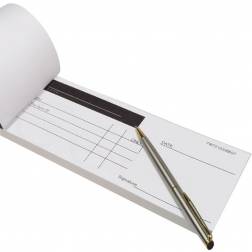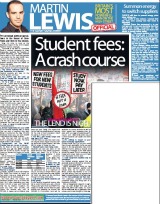This is a complex area of law, with few codified answers; even some banks have been stumped. We wanted to bring you this info asap due to its rapidly increasing use, but some of the technical detail is best assumption, not confirmed fact.
What's it called when someone takes cash from your bank account without permission? Most would say it's stealing, banks call it setting off. This is a hidden danger for anyone with credit cards, loans or mortgages where they bank or save. Banks can and do use the money to repay the debt at any time, without even notifying you; which can cause financial hell. This guide shows you how to beat it.

An essential warning
A. Most banks have the right to transfer cash from your bank or savings accounts to pay off other debts held with them, such as credit cards or loans. It's known as the right to 'Set-Off' or combine accounts. While this WON'T happen to most people, those struggling financially must be wary and prepare.
Sometimes there will be a term or condition in your contract allowing it to happen. Here’s an example:
"The Bank may, without notice, set off a debit balance, or debit interest, on an Account against any Account with a credit balance or credit interest held by the same Account Holder."
Yet while any firm can add set-off terms into its contract, in banking and tax there is an automatic right to use the procedure; so it's important to remember...
Checking your bank’s terms and conditions won’t always help, it often doesn’t need to be in there, so you’ve no way of knowing
Yet, your bank should let you know if they are going to extend their automatic right, such as move money between organisations in their group or to/from an account held in joint names or from business to private accounts. The rules are also slightly different for private banks so in these cases, check the terms and conditions to see what your lender may be entitled to do.
Currently it seems the account shouldn't be subject to any form of ongoing dispute (eg you're saying the debt isn't yours) and should be what's called "payable on demand"; which means it can be done on the entire balance of a credit card, but only missed monthly payment for loans (any updates on these complicated rules will go in the weekly email).
They don’t have to let you know
The worst thing about this rule is banks don’t have to let you know they are going to do this in advance, in case you just move the money out of the account. However it should let you know after it has done it, though there's no specified time period.
A. The first problem is banks are starting to use this provision more, and more people are being hit; Citizens Advice says it saw as increase of 25% in the number of set-off enquiries from 2007 to 2009.
You could argue it's fair; after all they’re owed the money. Yet it can cause financial nightmares, especially when the money pays non-priority debts instead of priority (eg rent, mortgage, utilites, countil tax) ones.
Here’s an example...
Ivor Problem has lost his job. In order to keep the roof over his head he’s put money aside to pay his mortgage and £800 is sitting in his bank account to do so.
Sadly he can’t afford to do this AND make the minimum repayment on his credit card, which is unsecured and therefore not a priority.
The day before these payments are going out, his bank takes £300 to pay off his credit card. When the automated monthly mortgage payment tries to be made...BOUNCE! So now he’s in mortgage arrears and his home’s under threat.
Please report your experiences with Setting Off
The problems the use of setting-off can cause are endless; frankly anything that impacts how people budget. If you've money set aside to pay for imminent cheques or direct debits from your accounts, but money is taken without notice the day before, it could cause these payments to bounce and you to face Bank Charges.
And technically the rules give quite wide ranging powers to banks, way beyond just sorting out unpaid accounts. This means if you had a credit card with a bank, owed £1,000, and it decided it wanted to reduce your credit limit to £500, it could take the money from your savings account; though we've not heard of any cases like that. Also, remember, if you've debts it's usually worth Paying them off with your savings.
A. There’s an obvious answer...
Keep your debts and bank account/savings in separate institutions
Usually it's much easier to move savings than debts; see the Best Bank Accounts and Top Savings Accounts guides for the best rates. If you’re in financial difficulty then try for a Basic Bank Account or check if your local Credit Union offers a current account.
What's a separate institution?
Of course now that many banks are part of mega-conglomerates, it begs the question "what is a separate institution?" The answer depends on the bank's legal entity, something with no easy definition, but generally means how it's registered at company’s house. This seems to be mostly just the different individual bank brands (and for the sake of clarity ISN'T always the same as the definitions used for Savings Safety).
In the case of the recent merger between Santander, Abbey, Alliance and Leicester and Bradford and Bingley; it already has the right to move money between old Abbey and B&B; savings accounts, and is now in the process of adding A&L; too. This will be allowed from 28 August 2010, unless your T&Cs; already give permission, or your have a fixed, promotional or bonus rate product opened before 28 May 2010 where the set off right starts three months from the end date.
Contact your bank about repayments
It’s also important, if you’re missing credit card and loan payments, to get in touch with your bank to see if you can make arrangements to get back on track. You should be given a reasonable chance to sort this out. If it's a severe problem, speak to one of the non-profit debt counselling agencies. You can find a full list in the Debt Help guide.
When mental health problems are involved, some special solutions apply. Our free Mental Health & Debt Help PDF booklet has more on how work with banks and specific tips for bipolar and depression sufferers and more.
Banks are only supposed to use money from a savings or current account if you’ve seriously defaulted and not been in touch to discuss how to get back on in control. For example, it's commonly used in the case of bankruptcy.
Complain to the Ombudsman
If you feel your bank has left you in the lurch and you’ve complained to no avail, then do ensure you write to the free Financial Ombudsman Service.
Its job is to impartially adjudicate on problems between banks and customers. While you can't challenge the fact it used setting-off, as that's a legal right, it will take into account any discussion you've had with your bank about repaying the debt and whether you've 'been treated fairly' or put in hardship due to it.
Here's a example of how complaining can get your money back...
I had outstanding utility bills that I couldn't pay due to my bank taking money from my account to pay off a credit card bill. I sent them copies of red bills and demand letters showing I was behind and got all the money back. I then used the money to pay the outstanding utility bills.
For full details on how the Ombudsman can help, including free template letters see the Financial Fight Back guide.
A. The source of this law is slightly unclear, though many believe it stems back to a case from the nineteenth century.
Nowadays the only documented proof on how the procedure is meant to be followed is in the Lending Code, a voluntary code of practice that most banks subscribe to (see code members).
In a rather complex paragraph it explains that money should only be used to pay "non-priority debts" once provision has been made for priority debts (see the full set-off section.)
Regulation, reports and reminders
At the moment, this practice isn’t regulated, but the Financial Services Authority took on responsibility of retail banking conduct of business in November 09 so the hope is things will improve. The Labour government also suggested in Sep 2009 it would investigate the practices, see the MSE News Story Number 10 to stop banks dipping into your account?.
Yet the concern is setting off is becoming much more widely used right now, some have even had their benefits taken, leaving them unable to make more important payments. Citizens Advice had a campaign on this in 2009 saying...
"We are asking for banks to comply with what they have agreed to by signing up to the Banking Code [now Lending Code]. If compliance remains an issue then it may be that the Standards Board will have to take a fresh look at this area."
The Standards Board did just that. In March 2009 it sent the below reminder to its subscribers, although there hasn't been any change since then...
"We have been concerned to have received reports from debt advisers of what appears to be inappropriate use of set-off where the customers are in financial difficulties and where the funds appropriated had been intended by the customer to meet essential day-to-day living expenditure."
"The supporting information that the debt advisers have provided would seem to indicate that this may in some cases be a systemic issue. We are seeking specific case details and intend to investigate these formally."
Ask A Question / Forum Discussion
Setting Off
Spotted out of date info/broken links?
Email brokenlink@moneysavingexpert.com to let us know
Always double check the product details before signing up to them

LINKS THAT HELP THIS SITE (all have a * in above article)
(this has no impact on product or pick - see explanation below)
N/a
Explanation (of * links)
How this site is funded. Two types of contacts are listed. The first, which all have a * within the main body of the articles, help MoneySavingExpert.com stay free to use, as they're 'affiliated links' which invisibly take you usually via affiliate linkage or commercial money sites, which then pay this site. It's worth noting this means the third party used may be named on any credit agreements. The second type doesn't help and therefore doesn't have a *.You shouldn't notice any difference, the links don't impact the product at all and the editorial line (the things we write) is NEVER impacted by the revenue - we aim to look at all available products. If it isn't possible to get an affiliate link for the best product, it is still included in exactly the same way. For more details read how this site is financed.
LINKS THAT DON'T HELP THIS SITE
(please only use if necessary)
No * Link Available: Banking Code , Financial Ombudsman Service
Duplicate links of the * links above for the sake of transparency, but this version doesn't help MoneySavingExpert.com:
N/a



























